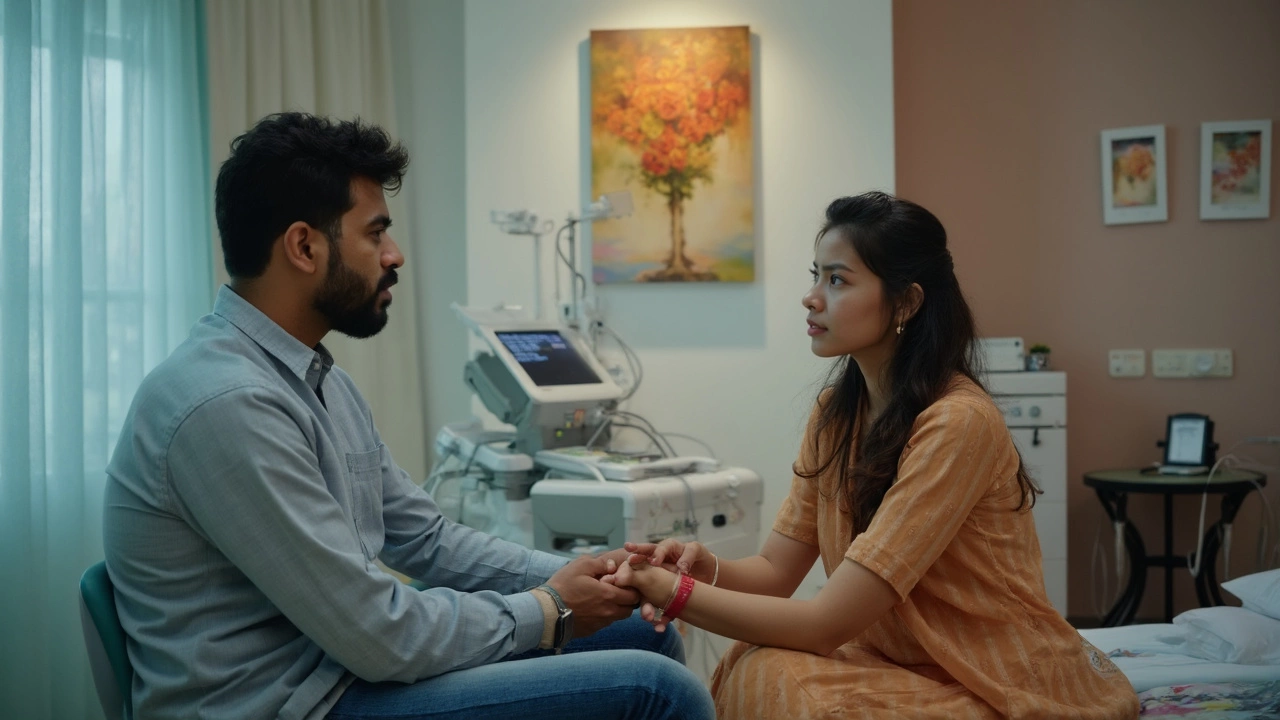IVF, or in vitro fertilization, has become a popular choice for couples struggling with infertility, but it comes with its own set of challenges. Potential side effects include physical discomfort, emotional stress, and financial strain due to the high costs involved. There's also an increased risk of multiple pregnancies, leading to further complications. Understanding these disadvantages is crucial for anyone considering this treatment.
Read MoreFertility Risks – Key Factors You Need to Watch
Want to start a family but not sure what could be standing in the way? Fertility isn’t just about one thing – it’s a mix of health, habits, and environment. Knowing the biggest risks helps you act early, avoid costly delays, and keep the process as smooth as possible.
Common Medical and Lifestyle Risks
First up, medical conditions. Diabetes, thyroid disorders, and polycystic ovary syndrome (PCOS) are top culprits that can mess with hormone balance. In India, untreated infections like chlamydia or tuberculosis can scar the reproductive organs, making conception harder.
Next, lifestyle choices. Smoking cuts blood flow to the ovaries and testes, lowering egg and sperm quality. Alcohol in excess does the same thing and can disrupt hormone signaling. A diet high in processed foods and low in antioxidants can also impair fertility – think more sugar, less fresh fruit and veggies.
Weight matters too. Being underweight can stop ovulation, while obesity creates insulin resistance that throws hormones off balance. Even moderate stress can affect the menstrual cycle and sperm production, so chronic pressure from work or home might be a hidden risk.
How to Reduce Your Risk
Good news: many risks are within your control. Start with a simple health check‑up. Get your blood sugar, thyroid levels, and hormone panel tested. If you have a condition like PCOS, follow your doctor’s treatment plan – medication, diet, or lifestyle tweaks can restore regular cycles.
Swap harmful habits for healthier ones. Quit smoking and cut back on alcohol. Replace sugary drinks with water or herbal teas. Load up on leafy greens, nuts, and fruits that boost antioxidants – they protect eggs and sperm from damage.
Exercise regularly but don’t overdo it. A mix of cardio and strength training keeps weight in a healthy range and improves circulation. Aim for 150 minutes of moderate activity each week, like brisk walking or cycling.
Stress management is often overlooked. Try short daily practices – deep breathing, yoga, or a quick walk outside. Even a 10‑minute mindfulness break can lower cortisol levels, which in turn supports hormone health.
Lastly, be aware of environmental toxins. Heavy metals in some Indian cosmetics, pesticides in stored grains, and industrial pollutants can affect reproductive organs. Choose organic produce when possible, use natural skin care products, and keep your living space well‑ventilated.
Keeping these steps in mind gives you a stronger chance of conceiving naturally. If you’ve tried for a year without success, it’s time to see a fertility specialist. Early intervention can pinpoint hidden issues and open up treatment options before they become harder to manage.
Remember, fertility is a team effort between both partners. Share the responsibility, support each other’s lifestyle changes, and stay informed. With the right knowledge and habits, you can lower the biggest fertility risks and move closer to the family you hope for.





